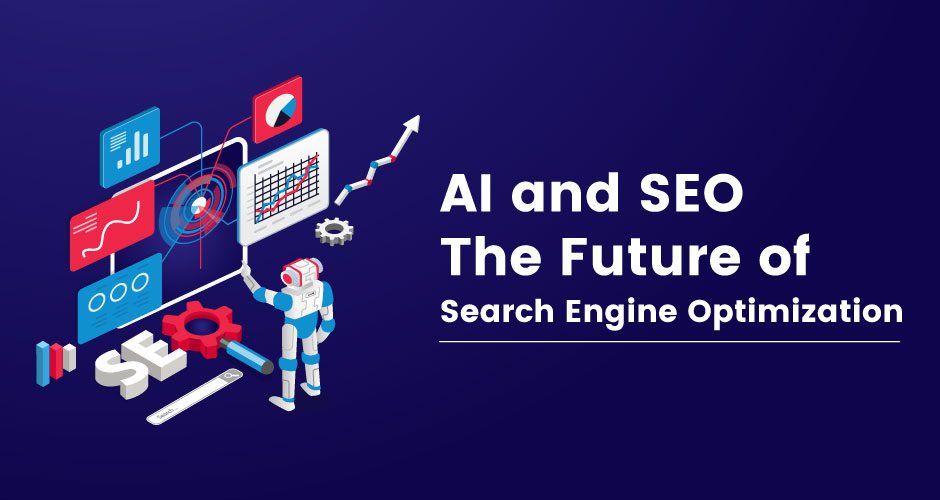
AI and SEO: How Artificial Intelligence is Shaping the Future of Search Engine Optimization
The 2026 Guide to Mastering Artificial Intelligence in Search Engine Optimization
The AI Revolution in SEO: Beyond Automation to Intelligence
As we move deeper into 2026, the integration of artificial intelligence into SEO has evolved from experimental to essential. What began as basic automation tools has transformed into intelligent systems that predict, optimize, and personalize search experiences at unprecedented scales.
This guide explores how AI technologies are fundamentally reshaping every aspect of SEO—from how we understand search intent to how we measure success. The synergy between AI and SEO has matured into a sophisticated partnership where machine learning doesn’t just assist human efforts but often leads the strategic direction.
1 AI-Powered Keyword Intelligence & Semantic Analysis
Beyond Traditional Keyword Research
In 2026, AI-powered keyword research has evolved from identifying search volume to understanding search ecosystems. Modern AI tools analyze:
- Semantic relationships between search queries
- User journey patterns across multiple searches
- Real-time search intent fluctuations
- Cross-channel keyword performance (voice, image, video)
- Predictive keyword opportunity scoring
89%
More accurate long-term keyword predictions using 2026 AI models compared to 2024 baselines
The 2026 Advantage: Predictive Keyword Modeling
Today’s AI systems don’t just report what’s trending—they predict what will trend. By analyzing:
- Global news and social sentiment patterns
- Seasonal search behavior variations
- Competitor content gaps in real-time
- Emerging user pain points through NLP analysis
2 Content Intelligence: AI-Driven Creation & Optimization
The Evolution of AI Content Systems
2026’s AI content tools have moved beyond basic generation to sophisticated content intelligence platforms that:
- Analyze top-performing content across industries
- Predict content engagement before publication
- Optimize for E-E-A-T signals automatically
- Generate personalized content variations for different audiences
- Maintain brand voice consistency across all outputs
AI-Enhanced Content Curation & Personalization
The most advanced implementations in 2026 focus on:
- Dynamic content adaptation based on user behavior
- Automated content refresh recommendations
- Real-time content performance optimization
- Cross-platform content synchronization
Real-World Impact: Enterprise Content Strategy
A global B2B software company implemented AI content intelligence in 2025. 12-month results:
- Content production efficiency improved by 320%
- Organic traffic increased by 156%
- Content engagement rates up by 89%
- Time-to-first-page ranking reduced by 67%
3 Technical SEO Automation & AI Auditing
AI-Powered Technical SEO in 2026
Modern AI auditing tools have transformed technical SEO from reactive to proactive:
- Predictive issue detection before they impact rankings
- Automated Core Web Vitals optimization
- Intelligent crawl budget allocation
- Real-time competitor technical analysis
Essential AI SEO Tools for 2026
Site Intelligence Pro
AI-powered technical audits with predictive optimization recommendations
Content Optimizer AI
Real-time content scoring and improvement suggestions based on ranking factors
Link Graph Analyzer
AI-driven backlink analysis and acquisition opportunity identification
Rank Predictor 2026
Machine learning models that forecast ranking impact of SEO changes
4 Natural Language Processing & Search Intent Mastery
NLP’s Evolution in Search Understanding
By 2026, NLP has become the cornerstone of search intent analysis, enabling:
- Micro-intent classification within broader search topics
- Emotional sentiment analysis of search queries
- Cross-language intent matching
- Voice search pattern prediction
73%
Increase in click-through rates when content is optimized using 2026 NLP intent analysis
Implementing NLP for Competitive Advantage
- Map user intent journeys across search, social, and on-site behavior
- Optimize for conversational search patterns
- Align content with user emotional states detected through query analysis
- Create intent-based content clusters rather than keyword-based silos
5 Machine Learning Algorithms & Ranking Factor Evolution
How Search Algorithms Learn in 2026
Modern search algorithms have evolved to become:
- Context-aware across user sessions
- Personalized based on individual search histories
- Cross-device intelligent (understanding multi-device journeys)
- Proactive in content discovery
Adapting to AI-Driven Ranking Systems
To succeed with 2026’s ML-powered algorithms:
- Focus on user satisfaction metrics as primary KPIs
- Build comprehensive topic authority
- Optimize for engagement depth, not just traffic volume
- Create interconnected content ecosystems
6 AI in Link Building & Authority Signals
Intelligent Link Acquisition Systems
2026’s AI-powered link building focuses on:
- Predictive authority gap analysis
- Automated relationship mapping for outreach
- Intelligent content-to-link opportunity matching
- Real-time link performance monitoring and optimization
Beyond Backlinks: AI and Authority Signals
The modern definition of “authority” includes:
- Cross-platform brand mention analysis
- Expert recognition in niche communities
- Content citation patterns across media types
- Influence network mapping and optimization
7 The Future: Preparing for AI-First SEO
2026+ Emerging Trends to Watch
- Generative AI for dynamic content personalization
- Predictive search result optimization
- AI-driven voice and visual search dominance
- Automated SEO strategy generation and testing
- Integration of SEO AI with broader marketing AI systems
The 2026 AI-SEO Readiness Checklist
- ✓ AI tools integrated into daily SEO workflows
- ✓ Team trained in AI interpretation and strategy
- ✓ Data infrastructure supporting AI analysis
- ✓ Ethical AI guidelines established
- ✓ Continuous learning systems in place
- ✓ Human-AI collaboration workflows defined
Key Takeaways: AI and SEO in 2026
Artificial intelligence has moved from being an SEO accessory to becoming its operational foundation. The integration is now so complete that distinguishing between “SEO” and “AI-SEO” is increasingly meaningless—intelligent optimization is simply modern SEO.
Intelligence Over Automation
2026’s AI tools provide strategic insights, not just automated tasks. The value is in interpretation, not execution.
Predictive Beats Reactive
Modern SEO success comes from anticipating search evolution, not just responding to algorithm updates.
Integration is Everything
AI works best when integrated across SEO functions, not as isolated point solutions.
Human-AI Partnership
The most effective strategies emerge from collaborative workflows where human expertise guides AI capabilities.
The future of SEO is intelligent, adaptive, and increasingly sophisticated. By embracing AI not as a tool but as a partner in optimization, forward-thinking businesses can navigate 2026’s search landscape with confidence, creativity, and competitive advantage.



